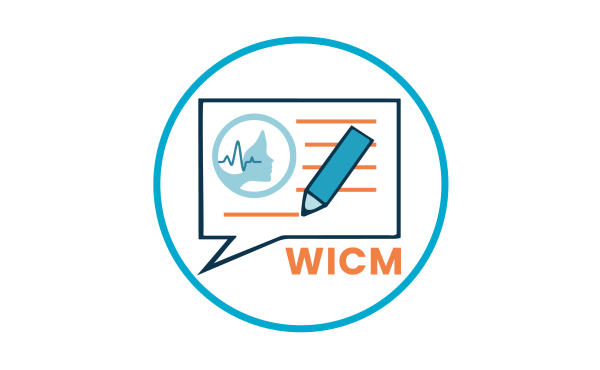WICM: Inspiring Careers in Critical Care – Dr Louise Hartley
Introduction from the interviewer:
My time working in Intensive Care as an ACCS-EM trainee was one of the most influential periods of my career so far. I worked with a truly incredible team. During the lockdown period, I was able to reflect on my time in Intensive Care and my role as a woman in medicine. As part of this, I approached eight women in the Intensive Care team to share their inspiration and their perspective. It was a privilege to hear their stories. Thank you to WICM for this platform and to the women you will read about, for their time and their words.
Dr Jasmine Medhora

Consultant in Intensive Care Medicine.
What led you to change specialty from Emergency Medicine to Intensive Care Medicine?
During my time in ACCS Emergency Medicine training, I was impressed by the skills and knowledge of the intensivists who were taking over the care of patients in the post-resuscitation phase. I was particularly in awe of their understanding and application of physiology. Feeling inspired and wishing for more critical care experience, I went to Australia for a year of Intensive Care Medicine in a tertiary level hospital. This was the first step towards switching specialty.
How does your experience from working in Australia influence your practice now?
Single specialty ICM has been established in Australia for some time. Subsequently, the processes are well engrained with excellent multi-speciality approaches to patient care. I have continued to promote this team working throughout my training and time as a consultant. I think it is particularly important to develop a collaborative relationship with Emergency Medicine enabling this provision of critical care in the department.
I worked in a large hospital in central Sydney managing complex critical care patients with a wide variety of pathology involving trauma, neuro and cardiac critical care. This has not only complemented my knowledge but enabled me to bring a varied experience to my training.
How did you cultivate your interest in ECMO?
Single specialty Intensive Care Medicine training allows for a year of special skills. A colleague recommended the ECMO fellowship at St Thomas’ Hospital in London and I decided to do this for my ST6 year. The complexity of patients I saw there was overwhelming at first but ultimately really excelled my clinical knowledge. I really enjoyed the challenge of managing this group of often very critically unwell patients who, with the provision of ECMO, got better.
Post CCT, I completed a fellowship at St Thomas’ to gain more cannulation experience followed by a month at the Karolinska ECMO unit in Sweden. This is one of the oldest ECMO centres and I had the chance to attend retrievals whilst there.
I went to Aberdeen to gain experience in ECMO at a consultant level. This was particularly interesting during the pandemic period and it was a good experience to be part of the retrieval service.
You have done some work in academia alongside your clinical work – have you got any advice for trainees wanting to pursue academic as well as clinical interests in ICM?
Having experience in research is a good thing. And this does not mean you have to have a PhD! Having your Good Clinical Practice certificate, for example, can be useful.
I had good opportunities for academic work when I was at St Thomas’ and have published on severe respiratory failure and ECMO. During my time in Aberdeen, I was the local lead for a worldwide ECMO observational study (ECMOCARD). If your unit is pro-research, then you should try and get involved.
What tips do you have for senior trainees who will soon transition to consultancy?
There is no rush to become a consultant. It’s important to feel ready; the core learning is during registrar years and the final year is good for decision-making skills and managing the dynamics of the ward round and team.
Gaining experience outside of your unit is worthwhile. Remember that your sub-specialty interest can be a unique selling point when applying for consultant posts.
Approximately 20% of ICU consultants in the UK are female, how do you think we can encourage more women into the specialty?
I think things are improving and there are more women coming into the specialty. ICM is becoming more flexible and accommodating to less than full time trainees. However, I do think there is room for improvement in the culture. Women are often discouraged from undertaking single ICM training, which I experienced when applying for the training programme.
What reflections from the pandemic situation will you take forward with you?
I think a ‘can do’ attitude came from the pandemic period with more collaboration.
Just because there was a ‘no’ the first time, does not mean it will be a ‘no’ again. Do not be afraid to ask!
Related Content
Written by: Jasmine Medhora & Roxy Bloomfield
Written by: Jasmine Medhora & Caroline Lacey
Written by: Jasmine Medhora & Deborah Owen

